With the advancement of technologies in the last century, there is a growth in demand for products with more advanced advanced embedded technology more specialized. The semiconductor microchip industry represents the future of much of the industry.
The main producer of these chips is Taiwan Semiconductor Manufacturing Co (TSMC), which holds 53% of the current market supply for companies like Apple and Intel. Created in 1987, with the goal of producing for third parties, the company achieved revenue of US$33 billion in 2017 and US$440 billion in 2020.

Taiwan’s quasi-hegemonic microchip production has been its advantage in the market and guarantee of an informal agreement with the United States for its security and defense against China.
The President of the United States, Joe Biden, said that the exponential growth of Taiwan economically in the electronic market represents “disruption in the supply chain [and] can endanger the lives and livelihoods of Americans,” as it creates a dependency on supply.
TSMC is investing in its growth and advancement in technologies, with US$100 billion the forecast is to reach the production of 5 nanometer chip, competing with the only current producer of this technology Samsung Electronics from South Korea. With this planning, the company says it is able to have a 60% presence in the supply of the market, which will help in the economic reestablishment after-COVID.
The major dispute involving Taiwan’s microchips is in the US strategic ambiguity with the country.
This ambiguity occurs because the United States cannot lose its main supplier of semiconductors, but cannot declare the unconditional defense of Taiwan since they do not want to wage a direct military conflict with China. China has an interest in Taiwan’s electronic production to advance as an Asian hegemonic power.
So what we see is a grey area of conflict.
With the advancement of 5G and 6G technology, a project that has a lot of Chinese investment, the microchip industry grows to meet this demand (about 5% annually).
This means that the United States has the interest of a certain commitment to Taiwan because, in addition to needing its supply of chips, there is an interest in preventing Chinese growth. Economically, China is gaining in importance and the US needs to ensure that the world’s microchip-dependent value chains are not affected, and thus do not threaten the main economic power.
Biden has a large investment currently in a development of industrial independence, about US$2 trillion in infrastructure being US$50 billion to boost semiconductor competitiveness. The importance of this action is the attempt to get out of this subordinate relationship with Taiwan. But still its production structurewill take a long time, potentially replacing the production coming from Taiwan.
Therefore, the indirect contract between the US and Taiwan is between the lines, in which there are needs that only Taiwan can help, as well as a security that only the United States can guarantee.


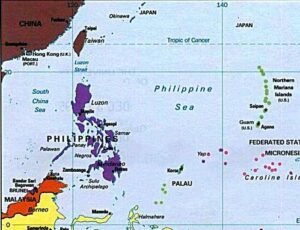
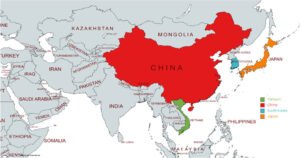


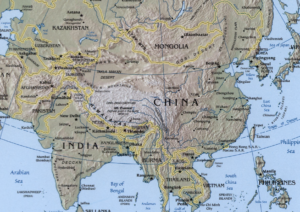



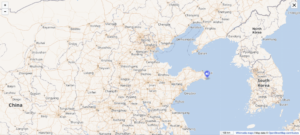





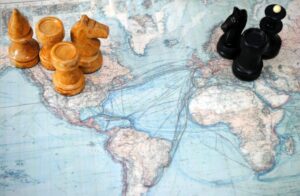





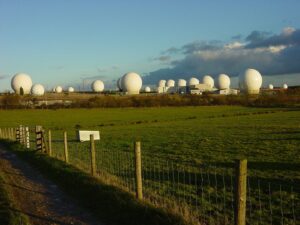

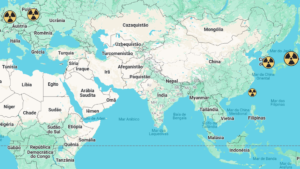
[…] The relationship between the United States and Taiwan returns to World War II, mainly in post-war US policies. Since 1980 with the recognition of the People’s Republic of China, there has been the application of ambiguous choices regarding the defense of Taiwan. […]
[…] the same time, the United States was focusing more on opposition that China symbolizes the nation and the European Union was in search of a greater strategic autonomy. But the steps that Russia is […]
[…] there is a Chinese security ambiguity, mainly with its relations with other countries of the Arabian Gulf and Iran at the same time, as […]
[…] relations with technologies that, in the long run, do not bring as much productive return as the microchip industry, artificial intelligence, quantum computing, […]
[…] EUA/OTAN mostrarem fraqueza, será um convite para China realmente invadir Taiwan. Mas, uma vez que Taiwan é o maior produtor de semicondutores do mundo, os EUA não permitiria e iria intervir. É uma questão de segurança […]
[…] It is because of this and the rivalry with the United States that a China battle for control over Taiwan, because then they would have the largest microchip production in the world in their territory. And this is also the reason why USA defend Taiwan against the Chinese advance. […]
[…] One of the biggest struggles for its popularization is its current cost, currently the larger producers of lithium are Argentina (16%) and Chile (40%), but the largest ore refiner is the China. […]
[…] Taiwan is a matter of national security for both the U.S. and the E.U. since it’s the largest producer of semiconductors in the world, the gold of the 21st century and the 4th economic revolution. Thus, based on the show of support […]
[…] é uma questão de segurança nacional tanto para os EUA quanto para a UE, já que a ilha é a maior produtora de semicondutores do mundo, o ouro do século 21 e a 4ª revolução econômica. Assim, com base na demonstração de apoio à […]
[…] Another factor not aligned with the Chinese goal to catch up with the United States is the repression of the technology industry. […]
[…] submission is the most likely tactic to be used. However, due to the geostrategic importance that Taiwan has in the production of high-capacity microprocessors, the island will be able to count on the protection of the US and the EU against Beijing, whether […]
[…] The country aims to achieve independence from foreign suppliers, encouraging increased production of high technology products and services, focusing on its semiconductor industry. […]